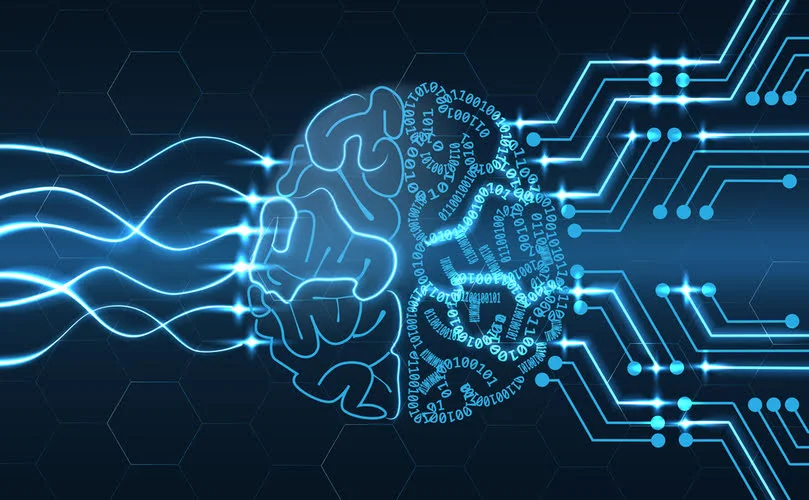The Rise Of Ai In Manufacturing: 2025 Tendencies, Tools & Real-world Impact
Certain instruments specialize solely in optimizing manufacturing processes, whereas a complete set addresses each manufacturing processes and provide chain optimization. Manufacturing AI options can be categorized into three segments, aligning with the various objectives they fulfill throughout the manufacturing ecosystem. The Manufacturing AI market varieties a dynamic panorama, showcasing a big selection of tools with distinct objectives and functionalities. Some tools are particularly designed for predictive maintenance, guaranteeing the seamless operation of machinery, whereas others excel in quality control, enhancing product precision. AI’s integration into production operations has transitioned from a futuristic imaginative and prescient to a sensible actuality, as the next firms utilizing ai in manufacturing prove. For example, how leading automotive manufacturers are putting AI in the driver’s seat, Ford placing cobots subsequent to assembly line employees, and BMW is customizing high quality control with its AI platform.
- The system’s optimization algorithms improved routing efficiency by 25% and lowered errors by 15%.
- This allows them to predict adjustments in demand and modify manufacturing appropriately, lowering the risk of stockouts or surplus inventory.
- AI improves efficiency by automating repetitive duties, optimizing production schedules, minimizing human error, and providing real-time insights that allow manufacturers to make data-driven selections.
- Producers are able to improve general tools effectiveness, remove downtime, and improve operations in consequence.
What Kinds Of Ai Technologies Are Included In Trade Ai?

By integrating AI into the design course of, corporations can quickly adapt designs based mostly on real-time consumer feedback. For instance, clothes manufacturers use AI algorithms to personalize products, permitting prospects to choose designs that meet their specific tastes. Jon Francis, chief data and analytics officer at GM, said synthetic intelligence is contributing to alter throughout the company. For one thing, he said, AI is helping GM attain consumers at the “proper moment” on their car-buying journeys, enabling the carmaker to regulate production traces in “real time” to satisfy demand. Furthermore, the mixing of AI with robotics has led to the event of humanoid robots capable of performing complicated tasks alongside human staff. Companies like Figure AI have launched robots similar to Determine 02, designed for deployment in manufacturing settings to enhance productiveness and tackle labour shortages.
Technology

This not solely saves time and reduces the risk of human error but additionally allows for extra constant and correct product inspection. A pharmaceutical manufacturer company applied machine vision systems outfitted with deep learning algorithms to inspect their packaging line. The AI-powered system automatically detected defects in labels, seals, and packaging integrity at a speed and accuracy unattainable by human inspectors. This lowered the danger of faulty products reaching shoppers and minimized expensive remembers, ensuring high-quality standards. As an expert in the manufacturing trade, I’ve seen firsthand how AI options rework the sector. From predictive maintenance to quality management, AI purposes are revolutionizing manufacturing processes and improving operational efficiency https://www.globalcloudteam.com/ across the board.
Stock Optimization
Implementing AI use circumstances in manufacturing is a journey, but the benefits could be genuinely transformative with the right approach and instruments. By leveraging the power of AI to optimize processes, improve high quality, and drive innovation, manufacturers can stay forward of the curve and thrive in an increasingly competitive panorama. The manufacturing business has lengthy been a beacon of innovation, repeatedly evolving to fulfill the demands of contemporary manufacturing. Nonetheless, the appearance of artificial intelligence (AI) is propelling this sector into unprecedented realms of effectivity and capability, with quite a few AI use instances in manufacturing revolutionizing processes and outcomes. Synthetic intelligence (AI) is remodeling manufacturing by automating tasks, bettering productiveness, and driving innovation.
His areas of experience embrace connected automobiles, connected factories, supply chains, and financial providers. In his spare time, he mentors highschool Digital Trust college students on management, practices yoga, learns Indian classical music, and enjoys gardening. Via AI-driven simulations and predictive analytics, manufacturers can test designs virtually earlier than prototyping, saving time and decreasing development costs. Additionally, AI enables mass customization, tailoring merchandise to particular person client preferences at scale. Predictive maintenance uses real-time data to forecast when upkeep is needed, permitting producers to carry out maintenance before gear fails. This method helps avoid surprising breakdowns, reduces downtime, and extends the lifespan of equipment, leading to value financial savings and improved effectivity.
AI for manufacturing involves the strategic integration of AI technologies into various elements of the manufacturing process. This consists of production, high quality management, supply chain management, and predictive upkeep. This integration empowers manufacturers to automate repetitive duties, optimize decision-making, enhance product high quality, and streamline operations, ultimately driving business progress. One real-world example of how AI use circumstances and purposes affects manufacturing efficiency improvement is Common Electric (GE).
These improvements streamline operations whereas boosting efficiency and product quality. AI enhances high quality control processes by using computer imaginative and prescient and machine learning (often supported by a digital twin) to determine ai in the manufacturing industry defects in actual time. These methods analyze pictures of products as they’re manufactured, flagging inconsistencies or faults with larger accuracy than human inspectors. For instance, electronics producers use AI-driven quality management to assist ensure that parts meet strict specifications.
As AI evolves, we’ll see extra revolutionary functions emerge, boosting effectivity, high quality, and customization. When mixed with AI, these technologies provide unprecedented alternatives for optimization and innovation. With the rising use of AI, there is a growing concern about information privateness and security. As manufacturers undertake AI applied sciences, they should put sturdy protocols in place to protect delicate information and prevent misuse. Be Taught how to create a blockchain-based carbon credit training platform with top-notch options with a blockchain development firm. Many Industry AI options are designed to deal with manufacturing-specific needs, making the 2 closely related.
It might help producers streamline operations and reduce costs whereas enhancing total performance. Blockchain expertise is getting used at the aspect of AI to enhance supply chain visibility and traceability, as well as to streamline transactions and scale back prices. The manufacturing business is being revolutionized by these progressive applications of AI, which are anticipated to continue driving progress and effectivity sooner or later. AI know-how helps manufacturers simplify production processes, cut back prices, and enhance product high quality, which is resulting in a more competitive and profitable trade.

The manufacturing industry is evolving, and the transformation is pushed by the ability of artificial intelligence (AI). Advanced AI expertise like machine studying, laptop vision, and natural language processing helps producers be extra efficient, productive, and progressive. This complete guide explores the potential of AI in manufacturing, showcasing its many advantages, real-world functions, and critical concerns for successful implementation.
It also means having ways for individuals to offer suggestions and produce up any issues or worries they may have. By repeatedly amassing and analyzing information, firms can enhance the accuracy and effectiveness of their AI systems. Pioneered in the Nineteen Fifties, AI now refers back to the broad field of growing machines, applications, and instruments that approximate human habits, including all aspects of perceiving, reasoning, studying, and problem solving.
